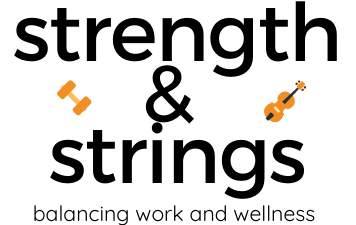
Are you overtraining? 10 signs you need to take a break from exercise
If you follow me on Instagram (if you’re not you should), you know that I am serious about my workout regime. Over the past few weeks, I noticed that my body was not responding well to exercising and my diet. Apparently, I was overtraining.
Despite two rest days per week, my workouts were becoming more difficult to complete and my weight was not dropping despite proper diet and exercise. To clarify, this felt different from the occasional soreness and fatigue from a good workout.
At first, I thought I was not drinking enough water. I upped my intake for a few days but it did not make a difference. My coach believed that I was overtraining and told me to continue my diet and cardio but take a few days off from the weights. Within a few days, I was feeling less sore and lost a pound and a half. Unsurprisingly, my coach was correct.
Even though I felt really weird not going to the gym, it was definitely the right thing to do. This break worked out nicely due to the nor’easter Long Island experienced last week and I did not have to drive in the snow and deal with parking in a foot of snow on the street in a small sedan.
But how did I get to this point? I was taking rest days, getting enough sleep, drinking enough water and had a solid post-workout routine. I also took a break from lifting at the end of December.
After reflecting on my workouts from the previous few weeks, I realized that I was training hard for every session and did not implement a deload week or pilates sessions when I should have. This also explained why I was feeling mentally exhausted for the past few weeks. I am feeling much better and ready to hit the weights soon.
Don’t want to end up like me? Continue reading for the signs of overtraining, treatment and solutions.
What is overtraining?
overtraining: constant intense training that does not provide adequate time for recovery.
American Council of Fitness (acefitness.com)
What causes overtraining?
One reason for this is preparation for a competition like a marathon. I am currently preparing to possibly compete in a bodybuilding competition this summer.
Another reason is emotional or psychological. In my case, I felt the need to push my body to the limit each session since I wanted to place well in my competition.
If you feel the need to constantly exercise, you may have an addiction to exercising and should seek professional help.
Signs your are overtraining
- Decreased performance during workouts
- Fatigue
- Muscle soreness or pain
- Lowered quality of sleep
- Smaller appetite
- Weight gain
- Changes in mood
- Elevated resting heart rate
- Depressed immune system
- Plateau in progress
How to treat overtraining
For me, I recovered by taking a week off from lifting, eating a clean diet and drinking enough water. I also did some yoga and light cardio on the stationary bike.
When I returned to the gym, I took it easy and slowly worked my way back up to my normal weights and rep ranges.
Prevention
To better track your workouts, consider using a fitness journal to monitor your progress and mood before your body starts experiencing the symptoms above.
Although there is no exact formula to prevent overtraining since everyone is different, consider these general things for your workout routine:
- Listen to your body.
- Alternate between heavy and light training days.
- Implement a deload week every 4-10 days.
- Take rest days 1-3 days a week.
- Eat a balanced diet.
- Drink enough water.
- Get enough sleep.
Have you ever overtrained? What did you do to get back on track?






